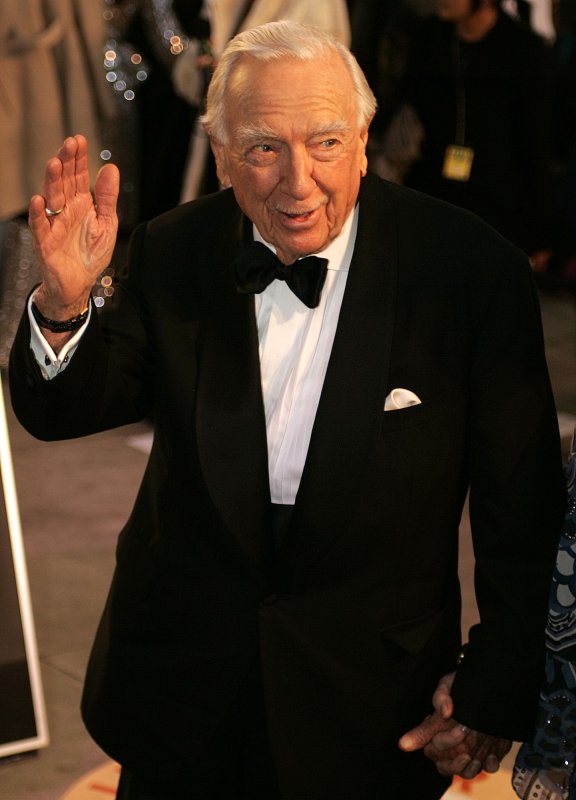Former newsman Walter Cronkite arrives at the Vanity Fair post-79th Academy Awards party at Morton's in West Hollywood on February 25, 2007. (UPI Photo/Gary C. Caskey) |
License Photo
NEW YORK, July 17 (UPI) -- Newsman Walter Cronkite, who died Friday at 92, was an enthusiastic booster of space travel who covered the U.S. space program extensively.
He called the U.S. manned moon landing in 1969 "the most exciting adventure of our time."
"When people look back on the 20th century and all these incredible inventions, all these technological improvements, particularly in medicine, atomic energy, all of it, the one thing that will live 400 years from now will be man's escape from his own environment and landing on the moon," he said.
As a television broadcaster, Cronkite covered all of the early manned U.S. space missions, beginning with the first flight in 1961 by Navy Cmdr. Alan B. Shepard. Recalling that flight, Cronkite said: "I experienced a first in my life, too. I found myself on the air speechless!"
He won Emmy Awards for his coverage of the July 1969 Apollo 11 moon landing and his 1971 coverage of the ill-fated Apollo 13 mission and the follow-up Apollo 14 mission.
After his retirement as "CBS Evening News Anchor" in 1981, Cronkite briefly served as host of "Walter Cronkite's Universe" on CBS. He served as special correspondent for the network and served on the board of CBS for 10 years, sometimes criticizing the company for cuts in the news budget and beginning to appear more frequently on other outlets, including CNN and National Public Radio, The New York Times reported.















